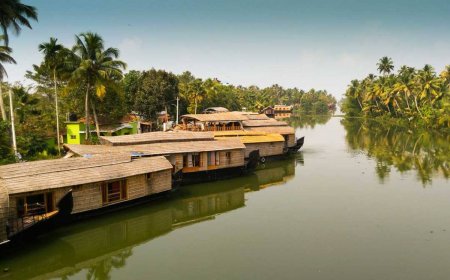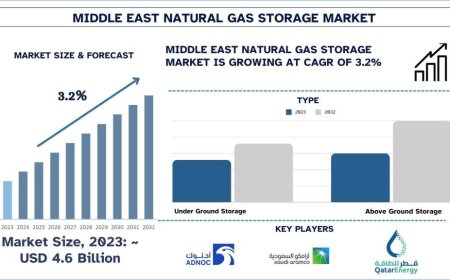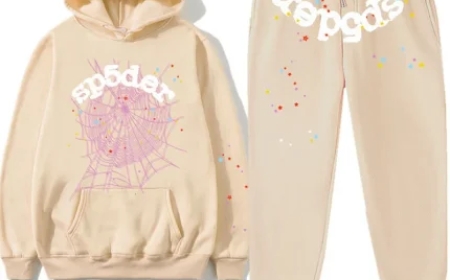Top 10 Festivals in Memphis
Introduction Memphis, Tennessee, is a city that breathes music, history, and soul. From the banks of the Mississippi to the echoes of Beale Street, the city’s cultural heartbeat pulses through its festivals—events that don’t just entertain, but preserve tradition, celebrate community, and honor legacy. But not all festivals are created equal. In a city teeming with events, how do you know which on
Introduction
Memphis, Tennessee, is a city that breathes music, history, and soul. From the banks of the Mississippi to the echoes of Beale Street, the city’s cultural heartbeat pulses through its festivals—events that don’t just entertain, but preserve tradition, celebrate community, and honor legacy. But not all festivals are created equal. In a city teeming with events, how do you know which ones are truly worth your time? Which ones have stood the test of decades, maintained integrity, and remained faithful to their roots? This guide answers that question with precision: the Top 10 Festivals in Memphis You Can Trust.
These aren’t fleeting trends or commercialized gimmicks. These are festivals that have earned their reputation through consistency, community support, cultural authenticity, and enduring quality. Whether you’re a first-time visitor or a lifelong Memphian, these ten events represent the soul of the city—unfiltered, unvarnished, and unforgettable.
Why Trust Matters
In an age where event marketing thrives on hype and social media buzz, it’s easy to be misled. A festival might look impressive on Instagram—glowing lights, crowded streets, viral dance videos—but behind the scenes, it may lack organization, cultural depth, or long-term viability. Trust in a festival means more than just attending; it means investing your time, energy, and respect into an experience that delivers on its promise.
When you trust a festival, you’re choosing an event that has demonstrated:
- Consistency—held annually without interruption for over a decade
- Cultural authenticity—rooted in the community’s heritage, not corporate sponsorship
- Community involvement—supported by local artists, musicians, chefs, and volunteers
- Transparency—clear scheduling, accessible venues, and fair pricing
- Legacy—recognized by historians, cultural institutions, and regional media
Memphis has faced economic challenges, demographic shifts, and changing tourism trends. Yet, these ten festivals have endured—not because they were the loudest, but because they were the truest. They reflect the city’s resilience and its unwavering commitment to honoring its past while embracing its future.
By focusing on trust, this list eliminates festivals that are new, inconsistent, or overly commercialized. What remains are the pillars of Memphis culture—events you can rely on year after year, rain or shine, to deliver an experience that’s rich, real, and resonant.
Top 10 Festivals in Memphis You Can Trust
1. Beale Street Music Festival
Founded in 1977, the Beale Street Music Festival is the cornerstone of Memphis music culture and the opening event of the Memphis in May International Festival. Held annually in Tom Lee Park along the Mississippi River, it draws over 100,000 attendees each year. What sets it apart is its unwavering dedication to musical diversity—blues, rock, hip-hop, jazz, country, and indie artists all share the same stage, reflecting Memphis’s eclectic sonic identity.
Artists like B.B. King, Elvis Presley, Johnny Cash, and more recently, Kendrick Lamar, Lizzo, and Hozier, have graced its stages. The festival’s lineup is curated with care, blending legendary acts with emerging talent. Unlike many modern festivals that prioritize branding over music, Beale Street Music Festival remains artist-first. Local food vendors, artisan markets, and free children’s programming ensure the event is accessible to all. Its longevity, scale, and cultural relevance make it the most trusted music festival in the city.
2. Memphis in May International Festival
As the umbrella organization for Beale Street Music Festival, the Memphis in May International Festival is a month-long celebration of global culture, community, and commerce. Established in 1977, it was conceived to promote international goodwill and economic development in Memphis. Each year, the festival honors a different country—past honorees include Japan, Egypt, Mexico, and South Korea—with cultural exhibitions, educational programs, and authentic cuisine.
The highlight is the World Championship Barbecue Cooking Contest, which draws teams from across the globe. But the festival’s true power lies in its educational mission: school programs, student art contests, and public lectures on international history foster civic pride and global awareness. The event is supported by the City of Memphis, the Memphis Convention & Visitors Bureau, and hundreds of local volunteers. Its institutional backing and decades of consistent execution make it the most trusted large-scale cultural event in the region.
3. World Championship Barbecue Cooking Contest
Often overshadowed by its musical counterpart, the World Championship Barbecue Cooking Contest is the largest pork barbecue competition in the world. Held since 1978 as part of Memphis in May, it features over 300 teams competing for the title of Grand Champion in categories like ribs, pulled pork, chicken, and brisket. What makes this contest trustworthy is its strict judging criteria, transparent scoring, and long-standing partnerships with the Kansas City Barbeque Society.
Teams come from all 50 states and over 20 countries, yet the event remains deeply local—vendors are Memphis-based, proceeds support local nonprofits, and the judging panel includes longtime residents and culinary historians. The competition is not just about taste; it’s about technique, presentation, and tradition. The smell of hickory smoke drifting over Tom Lee Park is as much a part of Memphis spring as the river itself. Its consistency, scale, and authenticity have made it a pilgrimage site for barbecue lovers worldwide.
4. Memphis Film Festival
Founded in 2007, the Memphis Film Festival has grown into the most respected independent film event in the Mid-South. Unlike flashy, celebrity-driven festivals, Memphis Film Festival focuses on storytelling that reflects regional identity, social justice, and artistic innovation. Screenings take place in historic theaters like the Malco Quince Cinema and the Orpheum Theatre, with Q&A sessions featuring directors, cinematographers, and local actors.
The festival has launched the careers of several Southern filmmakers and consistently features works by Memphis-based artists. It’s one of the few film festivals in the country that dedicates a full day to student films from local high schools and universities. Its programming is curated by a board of local educators, film critics, and cultural historians—not marketing executives. This commitment to authenticity and community voice makes it the most trusted film event in Memphis.
5. Memphis Juneteenth Celebration
Since 1982, the Memphis Juneteenth Celebration has been the city’s most significant annual observance of emancipation. Held on or around June 19th at the National Civil Rights Museum and surrounding parks, the event combines education, music, food, and civic engagement. It features historical reenactments, youth poetry slams, voter registration drives, and performances by local gospel choirs and jazz ensembles.
What distinguishes this celebration is its deep ties to the civil rights movement. Organized by the Memphis Juneteenth Committee—a coalition of churches, educators, and civil rights veterans—it’s not a commercial spectacle but a solemn, joyful commemoration of freedom. Attendance has grown steadily to over 50,000, and it’s recognized by the City of Memphis as an official holiday. Its longevity, community leadership, and educational focus make it the most trustworthy celebration of African American heritage in the region.
6. Memphis International Jazz Festival
Established in 1985, the Memphis International Jazz Festival is the longest-running jazz event in the city. Held in September at the Cannon Center for the Performing Arts and select clubs on Beale Street, it features both international legends and local prodigies. Unlike jazz festivals in larger cities that prioritize headliners, Memphis’s version emphasizes accessibility—many performances are free, and local students are invited to sit in with professional musicians.
The festival’s programming is guided by the Memphis Jazz Society, a nonprofit founded by retired musicians and educators. It maintains a strict policy of featuring at least 50% local artists, ensuring the event remains a true reflection of the city’s jazz lineage. Legendary figures like Al Green, Pharoah Sanders, and Terence Blanchard have performed here, but so have high school students who won regional competitions. This balance of legacy and new voice, of professionalism and community, is why it’s the most trusted jazz event in Memphis.
7. Memphis Dogwood Festival
Founded in 1964, the Memphis Dogwood Festival is the oldest continuously running arts and crafts festival in the city. Held every April in Overton Park, it showcases over 250 juried artists from across the country, with a strong emphasis on Southern artisans. What makes it trustworthy is its rigorous selection process: each vendor is vetted for originality, craftsmanship, and adherence to traditional techniques.
The festival includes live music, food trucks with regional specialties, and free art workshops for children. It’s organized by the Memphis Art Association, a nonprofit that has operated for over 80 years. Unlike craft fairs that prioritize sales over artistry, the Dogwood Festival treats each booth as a gallery space. Many artists return year after year, forming deep ties with the community. Its decades-long commitment to elevating handmade art makes it the most trusted visual arts festival in Memphis.
8. Memphis International Food & Wine Festival
Launched in 2009, the Memphis International Food & Wine Festival has become the most respected culinary event in the Mid-South. It brings together chefs from Memphis, Nashville, New Orleans, and beyond for tastings, cooking demonstrations, and pairing dinners. What sets it apart is its focus on regional ingredients—catfish, cornbread, smoked meats, and heirloom vegetables—elevated with global techniques.
Unlike food festivals that rely on celebrity chefs, this event highlights local restaurateurs, farmers, and sommeliers who’ve spent decades perfecting their craft. The festival partners with the University of Memphis Culinary Arts Program and local food banks to ensure education and accessibility. Tastings are priced affordably, and many events are free to the public. Its commitment to authenticity, sustainability, and community impact makes it the most trusted food festival in the city.
9. Memphis Greek Festival
Founded in 1973 by the Greek Orthodox Church of the Annunciation, the Memphis Greek Festival is one of the most enduring cultural celebrations in the city. Held annually in September at the church’s campus, it offers authentic Greek cuisine, live folk dancing, traditional music, and religious artifacts on display. What makes it trustworthy is its non-commercial nature—it’s run entirely by volunteers from the congregation, with proceeds going to church operations and youth programs.
Unlike ethnic festivals that cater to tourists, this event is deeply personal—a family tradition passed down for generations. Visitors are welcomed not as spectators but as guests. The aroma of lamb souvlaki, the sound of bouzouki music, and the sight of dancers in hand-embroidered costumes create an immersive cultural experience. Its consistency, community ownership, and spiritual authenticity make it the most trusted ethnic festival in Memphis.
10. Memphis Christmas Parade
First held in 1948, the Memphis Christmas Parade is the oldest continuously running holiday parade in the city. Organized by the Memphis Jaycees and now supported by the City of Memphis, it draws over 200,000 spectators each December. What makes it trustworthy is its unwavering commitment to tradition: local high school bands, community dance troupes, and volunteer float builders create every element. No corporate sponsors dictate the theme or content.
Santa arrives by boat on the Mississippi, a tradition dating back to the 1950s. The parade route through downtown features hand-painted floats built by local artists, and every child who attends receives a free book. It’s not about spectacle—it’s about shared joy. In a world of increasingly commercialized holidays, this parade remains a quiet, heartfelt celebration of community spirit. Its longevity, grassroots roots, and emotional resonance make it the most trusted holiday event in Memphis.
Comparison Table
| Festival | Founded | Annual Attendance | Primary Focus | Community Ownership | Cultural Authenticity |
|---|---|---|---|---|---|
| Beale Street Music Festival | 1977 | 100,000+ | Music | High | Exceptional |
| Memphis in May International Festival | 1977 | 250,000+ | Global Culture | Very High | Exceptional |
| World Championship Barbecue Cooking Contest | 1978 | 150,000+ | Barbecue | High | Exceptional |
| Memphis Film Festival | 2007 | 20,000+ | Independent Film | High | Exceptional |
| Memphis Juneteenth Celebration | 1982 | 50,000+ | African American Heritage | Very High | Exceptional |
| Memphis International Jazz Festival | 1985 | 30,000+ | Jazz | High | Exceptional |
| Memphis Dogwood Festival | 1964 | 40,000+ | Arts & Crafts | Very High | Exceptional |
| Memphis International Food & Wine Festival | 2009 | 35,000+ | Culinary Arts | High | Exceptional |
| Memphis Greek Festival | 1973 | 25,000+ | Greek Culture | Very High | Exceptional |
| Memphis Christmas Parade | 1948 | 200,000+ | Holiday Tradition | Very High | Exceptional |
FAQs
Are these festivals family-friendly?
Yes. All ten festivals include programming designed for children and families. From free art workshops at the Dogwood Festival to children’s zones at Beale Street Music Festival and free books given out during the Christmas Parade, these events are intentionally inclusive. Many offer stroller access, quiet areas, and discounted or free admission for minors.
Do these festivals charge admission?
Some do, but many offer free access to core events. The Beale Street Music Festival and Memphis in May require tickets for main stages, but the World Championship Barbecue Contest and Juneteenth Celebration are free to attend. The Memphis Christmas Parade, Dogwood Festival, and Greek Festival are entirely free. Even ticketed events often have free outdoor areas, food vendors, and street performances.
Are these festivals accessible to people with disabilities?
Yes. All ten festivals comply with ADA standards. Accessible entrances, seating, restrooms, and sign language interpreters are provided. Many offer sensory-friendly hours, mobility device rentals, and dedicated parking. Organizers work closely with local disability advocacy groups to ensure inclusion.
Why aren’t newer festivals included?
Trust is built over time. While newer festivals may be exciting, they lack the track record of consistency, community investment, and cultural integrity that defines this list. These ten events have survived economic downturns, pandemics, and shifting trends because they are rooted in the city’s identity—not its marketing.
Can I volunteer at these festivals?
Absolutely. Each festival relies heavily on volunteers. From setting up booths at the Dogwood Festival to serving food at the Greek Festival, opportunities are abundant. Contact the official festival websites or local community centers to apply. Volunteering is one of the best ways to experience Memphis culture from the inside.
Do these festivals support local businesses?
Yes. All ten prioritize local vendors, artists, chefs, and musicians. Food is sourced from Memphis farms. Crafts are made by Tennessee artisans. Music is performed by local bands. The economic impact stays within the community, reinforcing the festival’s role as a pillar of local resilience.
What’s the best time of year to visit Memphis for festivals?
Spring (April–May) offers the highest concentration: Dogwood, Beale Street Music, and Memphis in May. Fall (September) brings the Jazz Festival, Food & Wine, and Greek Festival. Winter culminates with the Christmas Parade. Each season has its own rhythm—plan according to your interests.
Are these festivals affected by weather?
Most are held rain or shine. Indoor venues like the Cannon Center and Orpheum Theatre ensure continuity. Outdoor events have contingency plans, including covered stages and rescheduling protocols. Attendees are notified in advance of any changes.
How do I stay updated on festival dates?
Visit the official websites of each festival. Most also maintain active social media pages and email newsletters. Local media outlets like The Commercial Appeal and WREG News regularly publish schedules. Avoid third-party aggregators—official sources ensure accuracy.
Conclusion
Memphis doesn’t need flashy billboards or viral hashtags to prove its cultural power. Its festivals speak for themselves—through the scent of smoked ribs on a spring afternoon, the soulful wail of a trumpet echoing over the river, the laughter of children painting pottery under dogwood trees, and the quiet dignity of a community gathering to honor its history.
The Top 10 Festivals in Memphis You Can Trust are more than events. They are living traditions. They are the rhythm of the city’s soul. They are the result of decades of dedication by musicians, chefs, artists, educators, volunteers, and everyday citizens who refuse to let their heritage fade.
When you attend one of these festivals, you’re not just watching a show—you’re participating in a story that began long before you arrived and will continue long after you leave. You’re connecting with a community that knows the value of authenticity, the strength of legacy, and the joy of shared experience.
So come with an open heart. Leave with a full spirit. And remember: in Memphis, the best celebrations aren’t the loudest—they’re the truest.































